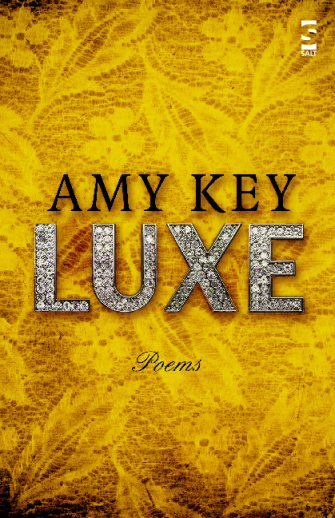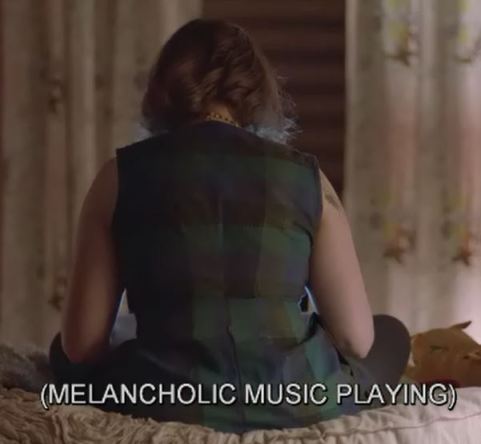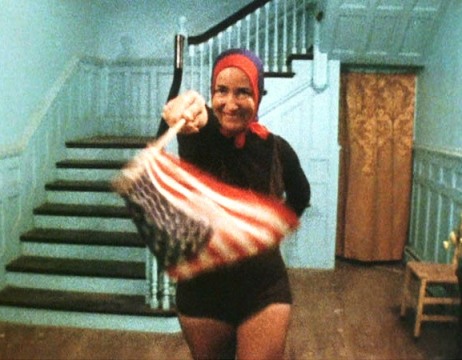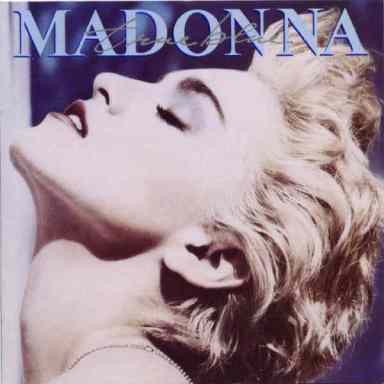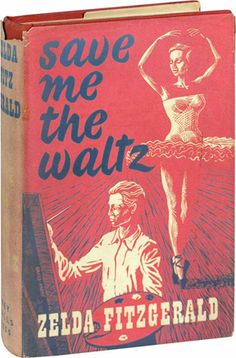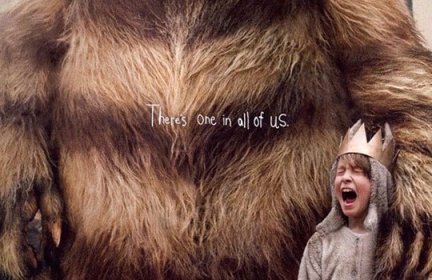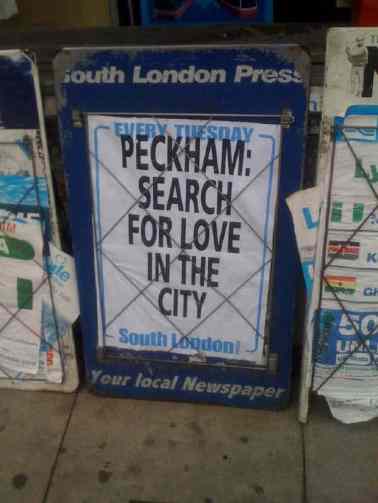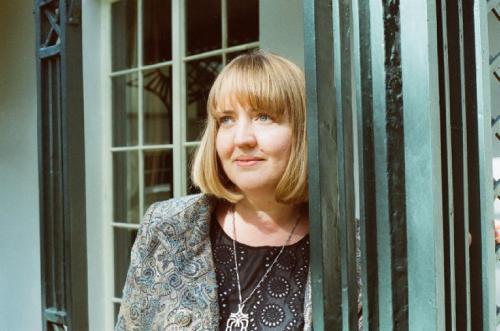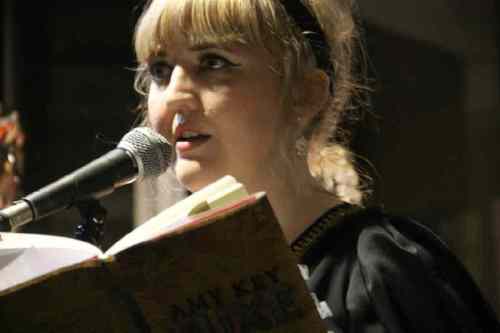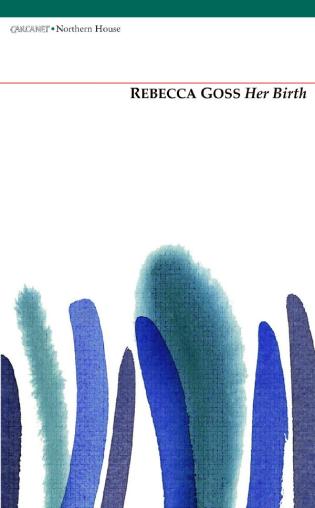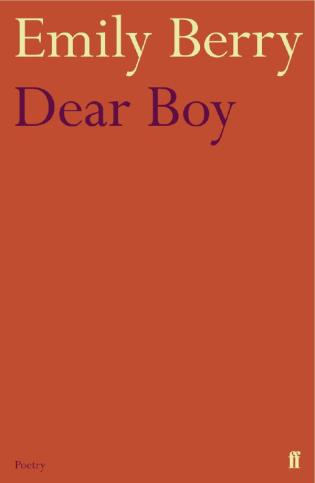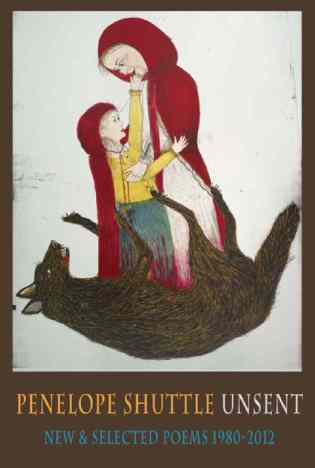
Arja Salafranca’s debut collection of short stories, The Thin Line, was published by Modjaji Books in 2010. Her first poetry collection, A life stripped of illusions, received the 1994 Sanlam Award for poetry, while a short story, ‘Couple on the Beach’, was a winner of the same award in 1999 for short fiction. Her second collection of poetry, The fire in which we burn, was published by Dye Hard Press in 2000. An anthology of prose and poetry, Glass Jars Among Trees, which she co-edited with Alan Finlay, was published by Jacana Media in 2003. Arja’s poetry is also collected in Isis X (Botsotso, 2005). She edited the anthology The Edge of Things: South African Short Fiction, published by Dye Hard Press in 2011. She is editor of the Life supplement in the Johannesburg-based The Sunday Independent and keeps a blog here.

Communion with self
Diary excerpts from Volume 40
by Arja Salafranca
I’ve kept diaries since the age of eleven – I can’t explain what compulsion made me begin. A friend of my mother’s gave me a beautiful red corduroy book to write my poems in, which I did, but the itch was there. After a few pages of poems I started – it was January 31 1983, and my large childish handwriting set out the details of my life: only child of a divorced single mother living in Orange Grove with three Maltese poodles, attending Standard Four at HA Jack Primary. And then onward, to a bosom friend, Leora, to a trip to California to visit family, through the teen years, university, first years working as a crime and entertainment journalist. First relationships, going to live in London briefly, and then back home to Johannesburg.
The habit had begun, it’s one that’s simply unshakeable, even when I have tried to break myself out of it. No matter how busy I am I must return to the diary sometime in the week – it’s where I think, discover what I think, and make sense of the ebbs and flows in my life. I use it as a writer’s diary, making notes, examining the flaws in my characters, thinking about character and plot, finding my way through. At times I plunder it, taking passages and using them in other writing – journalism, essays or even fiction. I use it as a travel journal when I leave home. It’s also a space where I go if the world feels ashen and I need to discover why; I use it to note nights out with friends, to explore conversations and encounters that are meaningful and I use it to explore other relationships in my life as well. It’s something akin to a life’s work – I’m now on Volume 41. I take care with my writing, I use a fountain pen, I write in A4 covered/bound books, I like the almost silent glide of pen, the communion with self and the subsequent exploration and discovery of self.

Diary extract from October 2010
Sunday, October 23 2010
Marianne Faithfull’s ‘The Ballad of Lucy Jordan’ and Elkie Brooks’ ‘Pearl’s a singer’ remain, still, among my favourite songs. I’ve loved ‘Ballad’ since I first heard it in my late teens or early twenties, or even before. Influence of my mother who had the tape cassette of Broken English, the album that contains the song. I heard ‘Pearl’s a singer’ on the radio sometime in my twenties and then tracked down the song and the lyrics after we returned from England. This was pre-YouTube days and pre-everything-on-the-net days too. At various times I have played both songs over and over, watching Faithfull and Brooks performing them on YouTube, getting my fix. Both songs talk of broken dreams, lost hope, promises that have turned sour. Pearl the singer singing of ‘the things she never got to do’. I’ve ached listening to these songs. Of Lucy Jordan at the age of thirty-seven realising ‘she’d never/ Ride through Paris in a sports car with the warm wind in her hair’. The ultimate suicide song, Lucy Jordan climbing onto the rooftop, ‘ … when all the laughter grew too loud/ And she bowed and curtsied to the man who reached and offered her his hand/ And he led her down to the long white car that waited past the crowd’.
I remember reading somewhere about the disputed nature of the meaning of the lyrics, but the ultimate sadness shines through, and I think that’s what so many fans of the song respond to when Faithfull launches into the song. At least, I do. I ache for the woman who has no choice but to reach for the man who offers her his hand, whose life has become mind-numbing, ‘a world turned to orange and the room went spinning round’. A life without hope, the lyrics have always resonated. In some ways it’s been my song – the always inevitable pull, the drift of hopelessness, it’s always been there. I recognised it first hearing the song decades ago, that hopelessness in me, which I’ve always fought against. Yet there, and present even at the age of ten when I tried to drown myself in the swimming pool at the complex called Sanlam Park. And then, years later, hearing ‘Pearl’s a singer’ and I felt the same ache and pull and sadness. Here was another lost and lonely soul, a failed artist, wanting to be Betty Grable but now sitting at a beer-stained table, ‘dreaming … all those dreams that never came true’. How achingly, awfully sad. Dreams should come true. And yet it happens all the time: dreams are lost along the way, discarded, sometimes it’s too difficult. People’s dreams don’t work out, for whatever reason, lack of talent, lack of opportunity, being too afraid to take a risk, or taking risks, still not getting there. And this song ‘Pearl’s a singer’ speaks to the longing of those who’ve tried. And it reaches deep into me too. As though somehow I knew how hard it would be.
Sunday, January 23 2011
I’m writing this with two cats sitting on my desk sharing my writing space – good thing I have a large desk. Leelah’s just finished licking Jamie’s back and neck, I snapped pictures of this love on my phone and I emailed them to myself. It’s dark out there, muggy still, which is why I have the overhead fan on. And this new extra-fine nib on my fountain pen gives me problems, the ink flow is sporadic, I press hard. Hurts the writing hand. And as I sit here, with my old-fashioned fountain pen nib, I wonder how many other people in Johannesburg, the world, are struggling with fountain pens … Why in the era of ballpoints, gel inks, a huge variety of fine liners and hi-techpoint V5 pilot pens with pure liquid ink, do we continue to use fountain pens? In my case I like the way they write cleanly, the thin nib producing needle-like strokes, and paradoxically I like the way it slows down my handwriting marginally, making me take care in forming mostly beautiful letters. The fineliners glide too quickly over these journal pages – I almost always feel letters slipping from me. And I don’t like ballpoints, they move too stiffly; and the liquid gels, the nibs are too thick for me – and for whatever reason I’m not alone. There’s an entire industry catering for us with our cartridges and delicate nibs, bottles of ink and beautiful journals. There’s some kind of hankering, some nostalgia, some sense of wanting to touch the written word which you can’t do when you’re inputting digitally.

Fordsburg, January 2011
I went on a late afternoon tour with Gillian and Stewart yesterday. It was run by Jo Buitendach, who runs PAST experiences, taking inner city tours to Braamfontein, art tours of Newtown, yoga in the city and more. Young, twenty-something, wearing dangly earrings in the shape of Johannesburg’s skyline. We met at the famous train – now a restaurant. A group of mainly curious whiteys, one black, two Indians, all of us local to judge from accents. We were warned to be careful of our bags, although told the area is safe. Still Gillian carried a backpack and I had my camera bag diagonally across me – old habits die hard in this city where we never walk. Taken first to Shaheen’s Sweets and Bakery, we swooned over the sweetmeats: rich concoctions of condensed milk, nuts or chocolate, and coconut. Fried chunks of meat on skewers piled over a stove, even samoosas in the window, golden skin pitted into bubbles. I tasted a potato and brinjal one, a delicious combination. Into a Hindu prayer shop, where Indian music seemed to dance in the background, there was incense for sale, face creams, camphor cream, pooja clothes, photos of Hindu deities, CDs of music – like being plunged into another world and that feeling grew, persisted delightfully as we walked through the streets. Walking, another activity we don’t do in Johannesburg and that too lent the tour an air of exoticism, the feeling that we were somewhere else, not quite in the city we know.

Shoes, the Fordsburg Market
Past the Majestic cinema, the 1960s lettering still on the brown facade. Fragments of information from Jo, part of the 1922 Miners’ Strike took place here. After going to the movies at the Majestic or going to the dance halls, people ended up at Solly’s, an institution in the area, a small, non-descript cafe/tearoom, shuttered yesterday afternoon although usually open, we were told. The area was classified for poor whites in the early years of the twentieth century, Indians moving in only later.

Fordsburg, the wall near Feitas
We moved on to view artworks under the bridge linking Fordsburg with Feitas, now derelict, a husk of its former, brighter self. The JDA (Johannesburg Development Agency) has brought improvements to the area, the paving is new, and part of the improvements included asking former Feitas residents to paint their memories of the place under the bridge. One family contributed the design of the wallpaper in their home. There’s a drawing of a street scene, people jiving, a mural of faces, a policeman demanding a look at someone’s Pass Book.

Artwork depicting a policeman demanding a look at someone’s
Pass Book
Back through the small radius of streets that is the main shopping centre. Past an old-world tailor’s, a small, higgledy-piggledy general grocer/dry goods shop, pausing at the shuttered Maronite Catholic Church, which used to serve the Lebanese in the area, now shuttered. In 1913 there was an attempt to classify Lebanese as non-white, the Lebanese fought against that and won. Jo suggested that the church could be turned into a little museum, which seems an excellent idea. Past shops selling burqas, a mannequin of a young boy wearing a skullcap.

At the Fordsburg market
The sun starting to turn oblique, the smell of drains and sewerage and the occasional blast of music from cars. People turned to look at us: this obvious tour group, expensive cameras dangling, our wide-eyed full of wonder stares giving us away as tourists in our own city.

Cutting coconuts
Drinking coconut juice from a freshly-hacked coconut. The market next, tasting pickled and vinegared dried fruits, chicken tikka at the food hall, boiled peanuts, other Indian savouries. Brightly-coloured shoes and dresses for sale, all warranting a closer look, religious signs in Arabic, some from the Qur’an. And then supper at the rather mediocre Al-Mechran restaurant, the only culinary disappointment on the tour. The restaurant hot and sultry, the air damp, almost tropical. I felt again as though I was somewhere else, remembering Bali’s sultriness. After, leaving the restaurant, we went past beggars who had been given left-over food from the restaurant, asking us for a rand or two, eyes solemn in long faces, heads covered by skullcaps.

Drinking coconut juice
At half-past eight at night the area was pumping, as Jo had promised. Shops stay open late, Mint Road jammed with cars, people walking, eating, socialising, shopping. The market stays open till ten or eleven at night, barber shops, hairdressers and beauty salons open, shops selling clothes, the bakeries selling sweetmeats. Almost like a carnival for us: this glimpse into an ordinary Saturday night in Fordsburg. We are used to our sterile malls, the shops that close early, our quiet suburbs. Only Parkhurst and Greenside have any kind of nightlife – but centred around restaurants only, the shops aren’t open. We left wanting to return. The area pulsed, glittered, moved, the energy palpable. We left, awed, amazed, envious. It was like stumbling on a jewel, it was also, as Gillian put it, like travelling. Like finding yourself unexpectedly dropped into another world, a world you did not suspect existed in the city you inhabit. Like Europe or India – we felt like we were far away from Johannesburg.
Saturday, February 5 2011
I’m reading The Journal of Joyce Carol Oates 1973-1982 – both a dispiriting as well as an encouraging exercise. The prolific Oates. By age forty, in 1978, she had published so many novels, short stories, essays, poems, plays etc that she was already part of the Establishment and was invited into the American Academy of Letters. She held down a job teaching literature at university (although it doesn’t seem to be a 9-5 set of hours) and she had been blissfully married to Raymond Smith since age twenty-two. What luck. Luck yes, but also hard work – she was/is continually writing, revising, working hard at her talent, constantly being accused of being too prolific. But that’s the “price” you pay for all that graft. It’s astonishing. So, not only luck, because there’s an element of “luck” in anything, but also damn hard work.
And her so happy marriage. That is astonishing too. There’s luck – in meeting the man you know you will love, and getting married two months later and all those years later you are still so blissfully in love, still so enmeshed, still so happy in being part of a “we”, rather than an “I” – she took to it like a duck to water. In fact, reading up on her, her husband had died in 2008, and they had been married forty-eight years, I was astonished to hear that she remarried a Princeton psychology professor in 2009, a year after her late husband’s death! My god, it seems almost indecent, obscene, don’t you need more time to mourn? How do you go on so quickly? But you can’t judge someone else’s life and emotions and ways of being … I’ve taken decades to get over Michael, that’s not healthy. In fact Oates’s behaviour is far more healthy.

Journal of Joyce Carol Oates
Sunday, February 6 2011
My mind too pulsy, too racing, thinking of the diary section of Anna’s for Déjà Vu, one of my novellas, and how her version of events is going to be different to those just recounted in the previous section, playing with words, playing with time, looking at how things are different when told by others and also I think showing that the previous section is Anna’s imagination, not reality, but that it also is reality – and it’s fiction, and blurring fiction and non-fiction as Damon Galgut does in In a Strange Room, although I’m not intending to do what he did there, call his characters Damon, who are all him, but are also all rendered into fictional constructs by the act of deciding to do so.
The central female characters in my novellas all have names beginning with A: Anna, Alexia … and so will the others – they are all parts of me, born from me, splinters of me, I’m the mother ship, the creator, they are the splintered-parts of me that live in fiction. And if I go on to write the “Cat” novella not only do I need another name, beginning with A, but that will show all the possibilities of this “A” character who cannot live. But perhaps actually calling them Cat, Catherine, Catie, Caitlin, etc is a step forward – as they have moved beyond A, beyond the first letter of the alphabet. These people are living, all the branches of where they could have been and what they could have done – which the “A” character is too fearful to do, follow.
Saturday, February 12 2011
Jenny and I saw Athol Fugard’s Sizwe Bansi is Dead at the Market Theatre. A revival of the famous play. I read it at Wits. The Laager Theatre was packed, a hot sweaty theatre, the aircon not coping with the suddenly ferocious heat we’re having. An absolutely brilliant evocation of apartheid, what it meant and how it emasculated people, deprived us of all our humanity, both oppressor and oppressed.
The play revolves around the illiterate Sizwe Bansi who receives a stamp in his passbook that he can’t read. He goes to his friend Styles, the photographer, who sees that the stamp is ordering Sizwe back to his own township, and he should’ve been there yesterday. When a man is found dead outside Styles suggests that Sizwe appropriate the man’s identity, a man with both a worker’s permit and permission to stay in Port Elizabeth. What to do? As uncomfortable as he is, Sizwe reluctantly takes on the man’s identity and passbook. Sizwe Bansi is truly dead. Horrifying that a system as brutal and dehumanising as apartheid could force such a choice on a person. It’s fiction, a play, but who’s to say that this situation didn’t occur during the apartheid years? For anyone wanting or needing a snapshot of what apartheid meant, this play provides a stark snapshot or introduction. And the use of wit and humour only serve to underscore the strength of the story told. It received a standing ovation that night and I’m sure other nights too. It’s simply one of the best plays I’ve seen in months.
Friday, March 11 2011
A feeling of ennui and boredom over me this week. The world ashen as though nothing really matters anymore. I don’t know what to do with this feeling. I am never bored, never at a loss. There’s always so much to do, things to write, nights out, and always books to read. I haven’t even wanted to write in here, as though the things I want to say are not worth saying. As though everything that has happened has already happened to me, and there will be nothing new, is nothing new. It will all be the same. Does this hopeless feeling stem from what I perceived as Tania’s words in therapy last week, of thinking I am not ready for intimacy? And if I’m not ready for that then I can never hope to welcome in another relationship? To place so much store on the words of a therapist – someone who supposedly knows you. Yet how much does she really know me after seeing me only an hour a week for just over a year, excluding the December breaks and missed appointments?

Dead Girls by Nancy Lee
Sunday, April 3 2011
Too tired now but to list the events. Exhausted yesterday, finished The Best American Travel Writing 2010, read Paul Auster’s short novel (novella) Travels in a Scriptorium, today started the wonderful short story collection by Nancy Lee, Dead Girls. Emailing today, working in here, making notes on stories, a step forward. But to have written fiction, now there’s success! At least the Easter long weekend is coming up. And now near ten, and I must try and be in bed by eleven to get to work at a normal time … so, list. Last Wednesday supper with Megan, the bruised friendship endures, is restored. Thursday, Craig Higginson’s book launch of The Landscape Painter at Kippies. Went with Gillian, met Hamilton Wende there, always good to chat; Friday supper with Gaby and some of her friends at Bellini’s. Saturday and Sunday at Utopia with Gillian, Sipho and Stewart. Arrived home on Sunday, Leonie (my mother) sleeping over here, cataract operation on the Monday and I had to take her in and drive her back. In between all this writing a review of The Best American Short Stories 2010 for Tania Hershman for The UK Short Review (UK-based website).
Wednesday I was home, but exhausted after early mornings, Leonie and her op. The creative writing circle was that night, but I had to bow out. Came home, fell asleep from six to seven-thirty. So dead. No way I could have gone. And then Thursday I had to get cracking writing two book reviews for Diane de Beer for The Star and the Pretoria News, wrote up Kerry Hammerton’s These are the Lies I Told You and Donvé Lee’s An Intimate War. Reviews. But writing makes me feel good, even if it’s non-fiction when I want to be doing fiction. But what matters and counts is to write, to feel I’ve achieved. And then The Edge of Things is published – short stories selected by me. I included one of my own, the polio story, ‘Iron Lung’. Looking at cover designs. Such satisfaction, again.

Terra Incognita by Sara Wheeler
Sunday, May 1 2011
I’m reading Sara Wheeler’s Terra Incognita, published in 1996, an account of her seven months spent at the Antarctic. I was madly inspired to start reading books on the Antarctic after reading Lucy Jane Bledsoe’s novel The Big Bang Symphony. But of course the novelist’s continent is not the travel writer’s. And each writer interprets a place depending on who they are or where they are coming from. In fact I have read books on this continent before: Don Pinnock’s Blue Ice: Travels in Antarctica and Alexa Thomson’s account of being a cook there, Antarctica on a Plate: Misadventures of a Polar Chef. But it was Bledsoe’s novel that sent me soaring for something more. I even looked up jobs and requirements for going there. There’s a writer’s and artist’s programme you can apply to, something more in my line since I’m not a scientist, engineer, cook nor anything medical.
There are strict physical and dental examinations you have to pass. And if you choose to over-winter there’s a psychological exam to make sure you can survive the dark nights and the shuttered life. Sadly I don’t think I’d survive either winter or summer there, despite my fascination. Never mind the cold – you do get issued with extreme weather gear – I know I’d probably run screaming the first day. My problem with leaving a safe place, the enforced togetherness. No, at the moment the Antarctica’s not for me, and I just have to satisfy my curiosity by reading the books. I’m fascinated by the cold, clean continent, the fierce blue ice, the groups of people who choose to go there, and why, and a place where nothing degrades, as Wheeler states in her book.
Therapy continues, as I told Jake when I saw him for supper last week. And at times it’s hard to know whether I’m applying a plaster to a bleeding wound or if the changes are deeper and more permanent. I mentioned to Jake that Tania had saved me from breaking up a friendship, and that was worth its weight in gold. But are there other changes? It is so hard to say for sure. At one of the sessions when I again brought up the question of whether therapy is working, Tania said there had been a change in that I had returned to therapy in December after dramatically cancelling, and after the whole Megan incident, and that I had gone to meet Megan even though every part of me was screaming not to. Yes I suppose that was progress. I recognised that if I didn’t meet Megan it might have ruptured the friendship beyond repair. And she thinks it was great progress that I returned to therapy. I still haven’t told her my feelings towards Megan, I still can’t explore that with her as they know each other and I need to. I’m never going to be over it, beyond it, if I don’t discuss what Megan really means to me, as if I even know. Or can figure it out.
Sunday, May 22 2011
God, the sanctuary of the diary. The clean lined pages, my handwriting, the promise of talking to myself, of attempting to sort the confusion and welter of thoughts in my head. The promise of quiet, the handwriting is quiet. Letters to myself, that’s what the diary is, letters to now, mostly, but also of course, a letter to the future …
The week past – the whirlwind of the Franschoek Literary Festival. Supper with writers on Friday and Saturday nights. I was on a panel talking about South African English with linguist Rajend Mesthrie on Saturday; on Sunday on a panel chatting about writing with Edyth Bulbring as convenor, with Doreen Baingana, interesting to hear her chatting about the different covers for her short story collection Tropical Fish published by Oshun in 2005. Back home Sunday exhilarated. Stimulated. Such an amazing festival, although so much to take in.

The Constant Mistress by Angela Lambert
Sunday, June 26 2011
Read Angela Lambert’s The Constant Mistress. This is the first chapter describing the main character Laura’s relationship with Kit, the man she cannot feel desire for:
“It is so easy to dismiss unrequited love. We watch coolly, wondering at the poor victim’s inability to see that there isn’t a hope. But in fact hope is all he does possess. In the name of hope, the unrequited lover sacrifices real life for fantasy, not knowing, or not caring, how ludicrous a figure he cuts. Hope blinds him to the indifference of the beloved.”
Utterly sad, utterly true. At one point in the novel a character says to Laura that everyone has a ‘man of your life’ and towards the final bit we discover who that has been for Laura, and the terrible guilty secret she’s been carrying around. A book, which for me, cut so close to the bone. Like looking into the mirror, it’s frightening and unwelcome, both of us unpartnered, childless, alone. We find ourselves single for a variety of reasons, but don’t most of us, men and women, yearn to connect with others, to be in love, to share? That is the success of life, a sign of having achieved, the single woman (and man) has failed in some important sense, we feel. The single state may be more acceptable than at any other time in history in the Western world, but we somehow still look down on it fundamentally.
And the morning when I finished the novel, again Megan was on my mind. And anger, regret, sadness, lingering hurt. Of course what I felt for her was unrequited love. The easiest – and hardest – thing would be for me to cut her out of my life. All I feel is hurt and anger when I see her, or think back on those days in December. But to cut her out entirely? It would be cleaner quicker, kinder to myself in the long run. And it’s not her fault that I feel these things for her. I’m not hurting her, I don’t think, but I am hurting myself. Sometimes it’s kinder to yourself not to spend time with someone who is and always will be just a friend, when so much of you needs, wants more …
I keep thinking of Jake, and in a lesser sense Steve, two men I’ve had relationships with, but we are, of course, now just friends. I ended it both times. Both have to now make do with simple friendships with me, that’s all. Both want more, both have to accept that it’s not coming. It doesn’t stop Jake from saying that he still finds me attractive; looking at me with that look in his eye; or Steve ‘jokingly’ saying, ‘I wish we could get married.’ It’s cruel: it’s cruel to the person on the receiving end, what can I say to them? And it’s cruel and awful for them to be on the other side, knowing me still, and knowing it’s impossible.

The Edge of Things, Dye Hard Press
Sunday, July 3 2011
Johannesburg launch of The Edge of Things at Love Books on Thursday night. A success even though I find it very hard to write about. Janet on the other end of email the night before, I was asking for her advice on the questions I was going to be asking. She’s read the book and reviewed it for Litnet. Left work early, wash hair. Took my drugs, beta blockers and Ativan and then calmed down. I’d also booked a table at Picabella’s for supper afterwards. Couldn’t believe how many people had RSVP’d.

Arja Salafranca and Gail Dendy
at the launch of The Edge of Things,
Love Books, Melville
I chaired the discussion with the writers from this city: Gillian Schutte, Hans Pienaar, Fred de Vries, Hamilton Wende, Jayne Bauling (lives in White River down for the launch), Bernard Levinson, Gail Dendy, Bernard Levinson; unfortunately David was Mahlamela was stuck in Limpopo. I chaired well, I was told, and so people commented on Facebook afterwards. Twenty-four of us for supper, hard to relax, jumping between people so I could talk to them all. Wanted so much to talk more to Kay hardly see her – she said it had been inspirational from a writing point of view. But whacked this weekend though. So drained. God, public speaking really takes it out of me. Yet it’s vital as a writer.

Kate Turkington and Arja at Tau Lodge, Madikwe
Sunday, July 17 2011
Off to Tau Lodge in the Madikwe with Kate. The highlight of the trip was sighting the mound of the elephant that had died of old age, or so the rangers surmised, four or five days previously. It lay in the veld not far from the lodge, its trunk already nibbled at, its insides exposed, spilling out, a mess of liver and other organs, the huge curve of ribcage exposed, flies buzzing imperceptibly. It was incredibly moving to see this great animal, exposed, lying dead, motionless. We are so used to seeing elephants monstrously alive, moving through the grass and bush, kings of the wild. To see one hacked by predators, a lumpen piece of meat now, rather than animal, was inexplicably humbling. Nearby two lions stretched into and blended into the bush. Two brothers, they had taken turns guarding the elephant, food for them, taking it in turns to drink at a nearby waterhole, one always guarding the metaphorical kill.

Madiwe Game Reserve
We went off to Tlou Dam, the sun setting, the trees in silhouette against the orange light, rhinos drinking, their shadows on the water. Birds and ducks skimming against the dam.

Tlou Dam, Tau, Madiwe Game Reserve
The next morning, back at the mound of elephant, a jackal nervously, quickly taking bites of the trunk, watching out for the somnolent lions. But that afternoon, we saw the most moving sight of all and one not often seen, although read about. A bull elephant had approached the carcass, and was mourning the dead elephant. The bull sniffed around the mound, trunk curling over the body, moving around it. My photos show the grief, tangible in the stance, it’s not hard to spot grief. The bull mock-charged one of the game drive vehicles that had got too close; and then spotted the lions, and chased them away, ears flapping, trumpeting distress and anger. We were all silenced by the sight as we bumped back along the tracks through the reserve.
Tuesday, August 9 2011
Life has rushed on. I’ve been to Cape Town for the Cape launch of The Edge of Things at the Book Lounge, stayed with Janine and Lyndall and discovered things about myself, had a hectic week, another hectic weekend, and here I am.
The launch went well; met Mervyn Sloman. Was in conversation with the Cape writers included in the book, Margie Orford, Jenna Mervis, Jennifer Lean, Tiah Beautement, Jeanne Hromnik, Liesl Jobson, Aryan Kaganof, Silke Heiss, Rosemund Handler and Karina Magdalena Szczurek. After, supper with Janine and Nerine Dorman and her husband in Roxy’s a funky place near the Book Lounge, newspaper cuttings hodge podged to the tables, old 50s movie posters on the walls. Finger supper. And then crashing out, stress of flying, the public speaking, as usual.

The Bell Tower, Castle of Good Hope
Met up with Janine on Friday and stayed with her and Lyndall at their new home in Bloubos the next two nights. We went to the castle on Saturday as I’d expressed interest in seeing it. I’d just written my story, ‘Jane and Lisa’, set on Málaga’s Alcazaba Moorish castle; and found myself once more inspired by a castle, by this grim, grey-walled, pentagonal, utilitarian castle fort. It could be the scene of some grim short story, something caught my imagination although I don’t know what will result. Looking at the torture chamber, the tiny prison cells, walls flaking with damp and neglect, a grim feeling. But somehow also inspiring and both Janine and Lyndall also enjoyed the visit.

Torture Chamber, Castle of Good Hope
Lunch at a Hout Bay hotel, calamari, sea in the near distance. Then walking along Sea Point promenade as the sun set, following the story of the girl and the dragonfly, a series of sculptures set up by a young Cape Town artist called Marieke Prinsloo Rowe. Watching the sea roll in and out, the bleakly dark grey rocks lining the shore, recalling the photos taken of me as a child of five, newly arrived in this country. I played on a beach as the sun set, it looks like the same beach, I’m sure it was. There’s something so soothing and restorative about watching waves, the sea, birds calling and swooping, couples walking, sitting, watching the sun set, people jogging, dogs being exercised, people out, alive, using their city. It was magical.
By then I was aware that I loved the energy between Janine and Lyndall. They are a good fit, despite their differences, superficial or not. Lyndall so deftly calming Janine down when she got into a panic with her new car in the narrow streets around the Biscuit Mill; Lyndall calm, orderly, taking control, steering Janine out of it physically and metaphorically. Or Janine carrying a large bag with three notebooks while Lyndall has a small bag, saying ‘It’s all about simplicity’. And the two feminine energies inside their home – I liked it. I found myself wanting this energy more than the male-female coupling. And I also realised that a relationship, gay or straight, is not purely about the sex. It’s about the energy as well, about whom you want to share your life with, and about where your attraction lies. I liked the space, the energy; it’s as nebulous sounding as that. If I had any doubts before I couldn’t ignore them after spending the weekend with Janine and Lyndall. Yes, I have been attracted to men, I’ve had sex. But perhaps it wasn’t right because it wasn’t right.
Home. And work, and weekend, editing my story ‘Jane and Lisa’ to send to the Outcasts* anthology on Monday night after I was back, the deadline. No time to really revise the story finished the previous Tuesday. But I’ve been wondering all week if I have put too much emphasis on Lisa’s feelings, her experience of being rejected for a heterosexual ‘normal’ life, rather than why Jane is doing this (going back to the heterosexual life). I wanted previously to explore why Jane would do this (as Anne did in real life), but I only touched on this. Was it enough? I’m not sure and no one has read it besides Janine, I sent it to her on Tuesday and she said she couldn’t stop reading, that I knew how to get into the emotions of a character. That nagging feeling though, that the heart of the story is why Jane would do this. So hard to judge your own work. I did learn a tremendous amount about writing about lesbian desire. Describing how Lisa looks at Jane, what she sees, and finds attractive awakened me. I have so often had to repress that in myself. So we wait and see. Wish I had had more time to revise or rethink, but that’s what comes of busyness and procrastination.
* The story is due for publication in 2012 in the Outcasts anthology.
Wednesday, August 24 2011
Two and a half thousand words written of Triangle today; yesterday another two thousand. The novella is now 32 000 words. Ten thousand words ago I thought I had maybe another ten to go; and now here I am again, saying another ten thousand. At times I feel like it’s becoming a novel. But a novel is at least 60 000 words, and I don’t think I am only halfway through this. She’s now met Paul a second time, for coffee, left confused, anxious, guilty? Runs to her best friend Megan, crying on her shoulder (still remember Venise coming over that time last year, after my work saga). And in some way I’m trying to stop her, pull back, halt it; but at the same time there’s no stopping the trajectory of the story, putting on the brakes. It will go on, and Alexia will do what she must and needs to do. And part of me doesn’t want to go there, doesn’t want to see her cause all this mayhem and destruction. And I am, in a way, dreading writing it. But at the same time I am in the story. I have to carry on writing it; I have to get to the end. Not to mention the fact that finishing it is part of my MA requirement. (At the back of my mind I do worry about publishing it, a collection of novellas – who is going to want to publish it? But I shut that voice up: the point is to finish, to write, and to think about publication later.) And so, I’m back in it. I was worried about returning to Triangle because I had no idea how to carry on. Alexia having left Paul after her meeting in Pretoria: what then? Just write, the story, the solution will come, was the answer. I’m asking questions as Julia Cameron does, learning to listen to whatever you want to call it. And so, yes, the story did start telling itself. The characters’ lives continued. They did what they had to do. I had to trust them, the story. (I’m still not absolutely sure how many words it’s going to end up being, but that’s another matter – part of the journey.)

Skoonheid, which means “beauty” in Afrikaans
Sunday, August 28 2011
I saw the movie Skoonheid, directed by Oliver Hermanus, on Friday night with Louise and Estelle. Gave Louise her birthday present – a copy of Re-claiming the L-Word as well as a packet of ‘dog’ cards like angel cards or other spiritual cards. She loved the cards and proceeded to ask us both to pick a card to see what it meant for us. Later she BBM’d thanking me for the ‘meaningful gifts’. So good to have read her correctly.
The movie was a shocker. I had been so looking forward to it and it didn’t disappoint. It’s the story of Francois van Heerden (played by Deon Lotz), a middle-aged married man. He lives with his wife in Bloemfontein where he owns a timber factory. At the wedding of one of his daughters, he notices twenty-two-year old Christian Roodt (Charles Keegan) up from Cape Town. He becomes infatuated with Christian and even invents a business trip to Cape Town for a few days so that he can be closer to Christian. Before that, the first of two shocking scenes. He drives off to meet other men on a farm where they are awkwardly introduced to each other, drinking beer, hardly talking. When one man brings in a Coloured teen, one guy angrily berates him, ‘Ons is nie moffies nie’. What follows is a group orgy: men giving each other blowjobs and having sex.
In Cape Town obsession and lust explode. Watching Christian from a distance. Going to a gay bar, hit on by other men where he rejects their advances. After all, he isn’t gay, is he? He gets horribly drunk and calls Christian to rescue him. A sense of menace and waiting throughout. They eat burgers in a restaurant and Francois tells Christian he wanted to be a pilot, has always held things together and chose family responsibilities instead. What follows is a climactic horrifying explosion at the heart of the movie.
Francois flies back to Bloemfontein where his wife picks him up from the airport. He answers her in his typical half-sentences. The final scene shows Francois ordering food at the Spur, sitting alone. He notices a young man sitting by the window who is joined by another young man and they kiss and laugh openly. Lovers. Francois’ bland expression turns into one of longing and regret. He’s watching what he will never have: an open, happy relationship with another man. Instead of the dried-up unsatisfying marriage he will remain in. The final scene shows him driving out of the parking lot, going round and round the circular ramp, screen slowly fading to black. It’s the only possible ending there could have been. Francois isn’t going to change.
The power of the film lies in Lotz’s superb acting and Hermanus’s directing. Lotz’s face is ordinary, seemingly blank. We’re waiting. We don’t know what we’re waiting for until that pivotal scene in Cape Town. A deeply powerful affecting film about Conservative Calvinistic Afrikaner manhood, about unrequited love, about not staying true to who you are, no matter whom or what that is. We sat speaking about the movie long afterwards, its meaning, its ramifications.
I left on a high, so enjoyed seeing them, connecting again, I feel as if in some way I was meant to meet Louise and Estelle.

The Forty Rules of Love by Elif Shafak
Destiny? … Destiny to the rescue in Triangle, my novella. I devoured Elif Shafak’s novel The Forty Rules of Love and then I had the answer as to why Alexia goes, again, for Paul. She believes he was the one, it was destiny, and they were meant to be together. A fortune teller once said that to me about Michael. Alexia felt dead when it was over. Life was never the same again. That’s why she’s seemingly throwing away her life, her marriage, her supposed happiness. That stubborn faith in destiny and fate. I’ve also never stopped believing that Michael and I were meant to be, but we couldn’t get past our personalities – and this is why Alexia pursues this ill-fated relationship. She has to know. No amount of logical reasoning from friends or in her head can sway her. Even if she’s wrong, she has to know. The fact that she has felt half alive all these years strengthens her argument, decision, resolve. She has never again bloomed as she did once, and so, in a way, she doesn’t have anything left to lose. She lost it before. And if she loses again she returns to the half life she’s lived up to now. She may be changed, yet again, by the experience, but perhaps, she still loses, or does she gain?
Read more of Arja’s writing at her blog.
*
